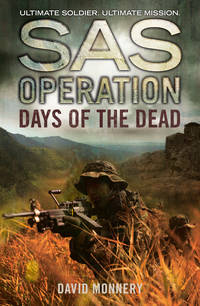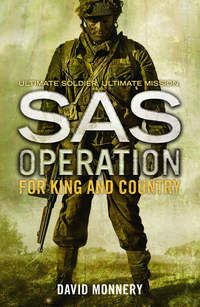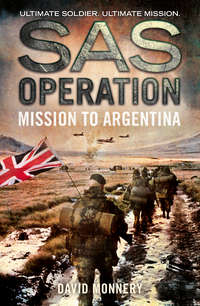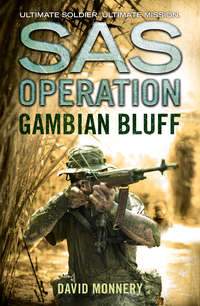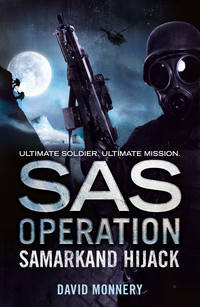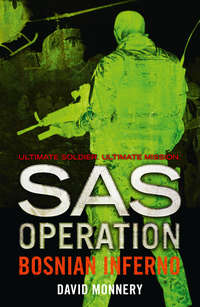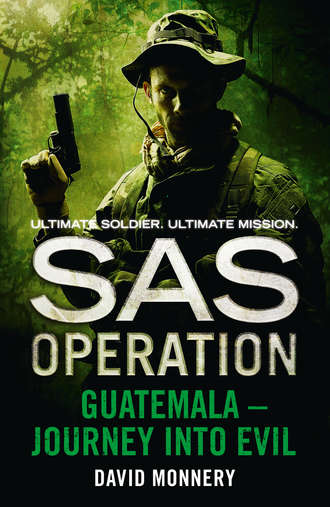
Полная версия
Guatemala – Journey into Evil
Chris finished the milk shake and paid his bill, walked downstairs and emerged from the dark corridor into the brilliance of the sunlit street. Antigua was a beautiful town, with its grids of cobbled streets, its mostly one-storey buildings painted in a pleasing variety of pastel shades, and its myriad colonial churches and monasteries. And all of it nestling beneath the three volcanoes: the towering Agua to the south, and Acatenango and the ever-smoking Fuego, ‘Fire’, to the south-west.
Chris looked at his watch and found he still had fifteen minutes before his afternoon class was due to begin. The bookshop he had noticed the previous day was just across the street, and finding a convenient gap in the one-way traffic he walked over. He was examining the window display when a reflected movement caught his eye. A man had started to cross the street behind him but then apparently changed his mind. He was now standing on the opposite pavement, staring at Chris’s back. Then, as if suddenly aware that Chris was watching his reflection he abruptly turned away, and stood gazing down the street.
Chris went into the shop and, after a minute or so of browsing among the natural history books, sneaked a look out of the window. The man was nowhere to be seen.
He decided he was being paranoid.
Five minutes later, walking across the main square, he stopped to tie his shoelaces and noticed the same man, some thirty metres behind him, staring vacantly into space.
Lieutenant Arturo Vincenzo ran a hand through his luxuriant black hair and scratched the back of his neck. ‘So how did they manage it?’ he asked his cousin. ‘How did they get the body all the way from the Cuchumatanes to the front door of the Swedish Embassy without anyone seeing anything?’
Captain Jorge Alvaro shrugged and took a slug from the bottle of Gallo beer. ‘El Espíritu works in mysterious ways,’ he said sardonically.
The two men were in a bar on Zona 1’s Calle 14, just around the corner from the Policia Nacional building, where Vincenzo’s Department of Criminal Investigation had its headquarters. Alvaro worked for G-2, and the cousins’ meetings were as often dictated by mutual business as they were by familial ties. This time, though, Vincenzo was simply indulging his curiosity – the DCI had not been invited to share in the Army’s latest public relations disaster.
The early evening hour ensured that the bar was almost empty, but Vincenzo kept his voice down in any case. ‘He is not in our files under that name,’ he said. ‘But…’
‘He is not known under any other name,’ Arturo growled. ‘Do you want another beer?’
‘Sure.’
Alvaro lifted a bottle and raised two fingers at the boy behind the bar.
‘When was he last heard of?’
‘Nineteen eighty-three. Maybe. We first heard of the bastard around 1979, but by 1983 it was looking less and less likely that only one man was involved. If there was, then he must have had a fucking time machine – his name was coming up in the Atitlán area, the Cuchumatanes, even way out in the Petén, and pretty much at the same time.’ He picked up the fresh bottle and poured it into the empty glass, shaking his head as he did so. ‘There’s no way it could have been the same man.’
‘If there’s one thing those Indians can do, it’s walk.’
Alvaro grunted. ‘They can’t fly, though, can they?’
Vincenzo grinned. ‘Thank Christ for that.’ He took another slug of beer. ‘Weren’t there any eyewitness descriptions of him or them?’
‘Hundreds of them – that was the problem. Most of them were unwilling witnesses, and no doubt most of them lied with their last breath. So El Espíritu was tall, short, dark, fair, blue-eyed, black-eyed – you name it. Absolutely fucking useless. The only semi-reliable description we had came from two English soldiers.’
‘What? How did that happen?’
‘Remember in 1980, when that guerrilla group took over the Tikal ruins for several days?’
‘Vaguely.’
‘They took about twenty tourists hostage, most of them English. The whole business lasted four days, I think. The guerrilla leader…’
‘El Espíritu.’
‘So he claimed. He would only negotiate through foreign intermediaries, and, like I said, most of the tourists were English, so they sent in a couple of their soldiers from Belize, men from that group which had handled the Iranian Embassy siege in London a few months earlier…’
‘The SAS.’
‘Yeah, that was them. Anyway…’
‘There’s one of them here now,’ Vincenzo interjected. ‘In Antigua.’
Alvaro was surprised. ‘Doing what?’
‘That’s what we wanted to know. He picked up a tail at the airport – the usual routine – and on his first night here he had dinner with the British Military Attaché, which isn’t routine for tourists. So we kept the tail on him and had the London Embassy check him out. He’s still on active service with the British Army, the SAS Regiment, but not for much longer. And he is currently on leave, improving his Spanish at one of the schools in Antigua.’
‘Your people have checked that out?’
Vincenzo looked hurt. ‘Of course. He’s doing just what he’s supposed to be doing.’
‘How old is he?’ Alvaro asked.
‘Thirty-two.’
‘Then he couldn’t have been one of the men at Tikal.’
Vincenzo smiled. ‘Now that would have been a coincidence.’
Alvaro shrugged and gulped down the rest of his beer. ‘I have to get back,’ he said as he got to his feet.
‘I thought you were finished for the day.’
‘I just remembered something.’
Alvaro walked briskly across the street to where the big Mercedes with smoked-glass windows was parked, and drove it slowly back to G-2 headquarters, his brain mulling over the idea which his cousin had unwittingly presented to him. The two English officers, whoever they were, had not only seen El Espíritu, but presumably had also heard him speak. And perhaps, in the spirit of co-operation between armed forces, one or both of the Englishmen could be persuaded to identify the voice on the tape.
Less than a mile to the north, Tomás Xicay was one of five Indians sitting in the back of an open truck, but the only one among them who was keeping an impatient watch out for their driver. Logic told him he was in no danger of apprehension – there was no Army major’s body hidden in this truck – but he couldn’t help feeling vulnerable. Beyond the cathedral, which loomed into the sky above the market, lay the city’s main square and across that stood the Palacio Nacional, which housed, among other things, the offices of the dreaded G-2.
Guatemala City was not easy on the nerves, and Tomás found himself wondering for the tenth time in as many minutes why he had chosen to stay the extra couple of days once their mission had been accomplished. To see his uncle was the obvious answer, but his uncle had hardly been at home, and his aunt had been turned into a nervous wreck by his mere presence in the house. There would be no next time, Tomás decided. Or at least not until the war was won.
It was getting dark now, and even a couple of his fellow travellers were beginning to stir with impatience, muttering to each other in Cakchiquel. This wasn’t a language Tomás was fluent in, but the gist of the conversation was clear enough – where the fuck was the driver?
Tomás rearranged his legs on the wooden floor. Judging from detritus scattered across it, the truck had arrived at the Central Market that morning loaded with squash, but now, like the many others waiting nearby, it was empty save for those taking passengers back into the Western Highlands.
On the nearest truck three Indian women were wearing the traditional skirts of San Pedro La Laguna and conversing in his native language, Tzutujil. Tomás had grown up in Santiago Atitlán, another large village on the shores of Lake Atitlán, and thought perhaps he recognized one of the women. But he made no attempt at contact – it had been almost ten years since he had lived in his home village, and he had no desire to draw attention to himself.
The driver arrived at last, wearing the smile of several beers on his face. But his driving skills seemed unimpaired, and soon the truck was threading its way out of the capital and on to the Pan-American Highway. As it climbed the first of many winding inclines the last slice of setting sun was briefly visible between distant volcanoes, and then night descended, reducing the world to those stretches of tarmac, verge and cliff face which fell within the glare of the truck’s headlights.
Staring out into the darkness Tomás found himself studying a mental picture of his father.
Miguel Mendoza Xicay had been tall for an Indian, five feet nine inches by the American count, and he had worn his hair long, the way he believed their Mayan ancestors had always done. He had not been an educated man – how could he with no school in the village of his childhood? – and it seemed likely that he had been too good-hearted to understand the realities of life in Guatemala. The family had access to a little land on the slopes of the volcano behind the village, and they had grown beans, coffee, corn and various fruits. The prices they received were always derisory, and no money could ever be saved, but the family only rarely went hungry, and there was usually the additional cash the children earned from making and selling handicrafts to help them through the worst times.
Then the Army had come, and established a camp only a couple of kilometres outside the town. The amount of land available to the townspeople shrank as Indian deeds went mysteriously missing and other claimants appeared with deeds which the local Spanish-speaking authorities fell over themselves to approve. The local people protested and the most vocal swiftly disappeared, never to be seen again, either dead or alive. Rumour had it that most of them had been thrown from helicopters, still conscious, into the smoking maw of San Pedro.
Through all these troubles Miguel Xicay had tenaciously clung to the hope that somehow the Army’s behaviour was an aberration, that if the authorities only knew what was really happening then they would step in and put a stop to it. No one expected life to be fair, and no one expected the rich Ladinos to behave like true Christians, but he found it hard to believe that such a campaign of brutality and murder could be sponsored by a government.
It was no accident that the man whom Tomás’s father most admired was the local priest, an American named Stanley Rother. The father had arrived in Santiago Atitlán in the mid-sixties, and like Miguel Xicay he had watched the escalating brutality with a mixture of horror and disbelief. When the Army called a meeting of all the village leaders he had listened with mounting rage as the local commander blamed all the killings, the rapes, the tortured corpses, on the communist subversivos, and furthermore demanded that the villagers report any suspicious behaviour to the Army.
He had got slowly to his feet, and in a silence pregnant with dread, told the Army commander that no one was fooled, that everyone knew it was the soldiers who raped and killed and tortured, and that they must stop these acts against man and God.
The next morning Stanley Rother had been shredded by automatic gunfire in the doorway of his church.
Tomás’s father had gone out that evening to talk with his friends, and had never been seen alive again. His body had been found on the volcano slopes a week later, minus tongue, eyes and hands. The twelve-year-old Tomás had not been meant to see it, but he had, and he was not sorry. He had needed to imprint it on his brain like a scar, because only then could he be sure never to forget.
And nor would he, he thought, as the truck laboured its way up another slope. Not that he needed that one dreadful memory any more. In the thirteen years which had passed since that day he had lost a mother, two brothers, many friends – and all of them still lived inside him.
His father especially so.
I knew him and still he is there in me…
Tomás’s hand moved involuntarily towards the pocket where he kept the dog-eared copy of Neruda’s poem. It was too dark to read, but that didn’t matter – he knew all the pages, all the lines, off by heart.
‘I, who knew him, saw him go down,’ the inner voice recited. ‘Till he existed only in what he was leaving – streets he could scarcely be aware of, houses he never would inhabit. I come back to see him and every day I wait …’
2
Luis Serrano leaned back in his leather swivel chair, fingers intertwined behind his head, and ran his tongue along his upper lip, tasting the trace of brandy which still clung to his moustache. Through two walls he could hear the TV football match his son and friends were watching, and the faint rat-a-tat of fireworks in the distant Plaza Mayor was audible above that. Presumably the Indians were dragging one of their Jesus statues around the square, choking themselves on incense as they went.
Serrano leaned forward once more, and absent-mindedly tapped the report with his right index finger. He now felt reasonably certain that the El Espíritu who had been such an irritant in the early eighties, and the subversivo on the tape from Quiche, were one and the same man.
It was not a good time for his reappearance. The Americans wanted a negotiated settlement with the subversivos, and the Government’s ability to impose one that was lacking in any specific commitments – one that avoided any discussion at all of the land issue – rested on the Army keeping a strong upper hand in the rural areas. The last thing anyone needed was the public resurrection of some old Indian hero, and more humiliations like the Muñoz business.
Serrano reached for his Zippo lighter – a gift from a former American military attaché – and the packet of Marlboro Lights. Alvaro’s idea of asking the English soldier to identify the voice was a good one, as far as it went. The previous day he had read through the records of the business in Tikal fifteen years before, and there was no doubt that both of the Englishmen had enjoyed several face-to-face conversations with the leader of the terrorists. If anyone could definitively identify the bastard, then they could.
He had ordered G-2’s man in the London embassy to run a check on the pair of them. The older one – James Docherty – had retired from the Army, and was apparently no longer living in England, but his younger companion was still on active service. It had taken some time, and not a little money – always assuming the agent’s expenses sheet could be believed – to ascertain that Darren Wilkinson was still serving in 22 SAS Regiment. His current rank was sergeant, he was attached to the Regiment’s Training Wing, and he was stationed at the Stirling Lines barracks near Hereford, some 120 miles west of London.
Serrano watched the smoke from his cigarette curl away, remembering the woman in London on his second and last visit. She had been one of the English secretaries at the embassy, with bright-red hair and pale skin. So exotic. So aggressive in bed.
He sighed and forced his mind back to the matter in hand. Mention of the Training Wing reminded him of something…ah yes, that business in Colombia which the SAS had been involved in a few years earlier. He had heard about it from the American Military Attaché at an embassy party. The Colombian Government, busy setting up an anti-narcotics unit, had asked the British Government to send them a couple of advisers. When one of the advisers and a local politician had been kidnapped by drug barons half an army of SAS soldiers had dropped out of the sky to rescue them. Or so the story went.
It didn’t really matter how true the last part was, Serrano thought. The point was that Britain had been prepared to send advisers to Colombia to help in the fight against drug trafficking. Might they not be equally willing to send one man to help in the fight against the subversivos?
This man Wilkinson could take part as an observer in the sweep which was planned for the following week. And when they captured or killed this El Espíritu then the Englishman would be on the spot to identify the miserable little shit.
And he would also, Serrano realized with satisfaction, be a neutral witness to the old boy’s death. No one would believe an Army report that El Espíritu had been killed, but an Englishman…His testimony could lay this particular ‘ghost’ once and for all, and prevent a host of other claimants to the name springing up in the dead man’s place.
Yes, Serrano thought. He liked it. He liked it a lot.
Would the British agree? They still had a reliable enough government from all reports, though maybe not quite so reliable as in the woman Thatcher’s time. In any event the SAS was unlikely to be a haven for communist sympathizers.
But Serrano had to admit that Guatemala’s reputation in the world had suffered in recent years. All those little creeps from Amnesty International and Americas Watch, living their safe little lives in the rich man’s world and bleating on about human rights abuses everywhere else.
How could he sugar the pill? What could Guatemala offer the British?
Another Belize treaty? The last president to sign one had almost been tried on treason charges, and the idea of sticking his neck out that far was not particularly appealing. It would be better, he decided, to go through the Americans. They had a keener appreciation of what was really at stake in Central America, and they could hardly refuse to help when their own beloved peace negotiations were on the line. ‘We are so close to a breakthrough,’ Serrano murmured out loud in rehearsal, ‘and this one terrorist could undermine everything we have all worked for.’
It sounded convincing enough for the US State Department. The Americans could then bribe or threaten the British, whichever they deemed more appropriate. Serrano picked up the phone to call the Foreign Ministry, trying in vain to remember the name of the current Foreign Minister.
The request for diplomatic assistance was delivered to the State Department by Guatemala’s Washington ambassador early the following afternoon. After receiving his visitor, Sam Udovich, Acting Head of the Central America desk, stared out at the falling snow and slowly consumed a strawberry cheese croissant before reaching for the internal phone.
‘Clemens,’ a voice answered.
‘Brent, hi. The Guatemalan Ambassador’s just been darkening my office door.’
‘And what do the death squads want today?’
Udovich told him.
Clemens listened in silence, and then laughed. ‘They want some Brit soldier to look over a line-up of corpses and pick out the guilty man?’ he asked incredulously.
‘That’s one way of putting it,’ Udovich agreed. ‘It is in our interests that they get this guy.’
‘That’s what Ollie North said.’
‘He was right,’ Udovich said drily.
Clemens sighed audibly.
‘Look,’ Udovich went on patiently, ‘I’d take it as a personal favour if you could get the Brits to get with the programme on this one.’ And if you can, went the first unspoken message, then I owe you one. And if you can’t or won’t, went the second, then don’t come to me for a favour anytime soon.
‘I’ll ask them,’ Clemens said.
‘Just so long as you don’t leave them in any doubt about how important we think this is.’
‘How important you think this is.’
Udovich snorted. ‘It’s not going to cost the Brits any money, for Christ’s sake. And that’s all they seem to care about these days.’
‘I’ll ask them,’ Clemens repeated. ‘If that’s all…’
‘One more thing. I think their intelligence boys should run a check on this guy Wilkinson, just in case. The Guatemalans want someone they can rely on – you understand me?’
‘Yeah,’ Clemens said. ‘I get the message.’
‘And they want him vetted?’ the Prime Minister asked rhetorically. He shook his head, looking saddened by the impertinence of the American request.
‘Just informally,’ Martin Clarke said assuagingly. He was the junior minister at the Foreign Office responsible for formulating a reply to Washington’s request.
The Prime Minister shook his head again, and then squeezed the bridge of his nose between thumb and forefinger, as if the shaking had given him a headache. He blinked and looked round the table. ‘Any comments?’ he asked.
For a moment no one seemed to have any.
‘What’s the current state of play in Guatemala?’ asked the young man with the flashy tie who was representing MI5.
‘Business as usual,’ Clarke answered drily.
‘Not quite,’ the silver-haired man from MI6 disagreed. ‘The Government claims to have won the war against the guerrillas, but the fact that they’re willing to negotiate a settlement suggests a rather different story.’
‘The negotiations are just a sop to the Americans,’ Clarke insisted.
‘That’s not what our people think,’ said the MI6 man. ‘They reckon the number of guerrillas in the mountains is at least holding steady, and may even be growing.’
‘Does it matter?’ asked Bill Warren, the Junior Defence Minister. ‘We’re only being asked for one adviser for a couple of weeks. I’m more interested in what sort of favour we can expect in return.’
‘Such as?’ the Prime Minister asked. ‘I don’t think we’ll get any better guarantees on Belize. No, I think we’d be better off treating this as nothing more than a favour to Washington.’ He paused for a moment and looked up, as if seeking divine guidance. ‘But the further we can distance the Government from the whole business, the better I’ll like it,’ he added. ‘If this SAS soldier gets caught up in some ghastly atrocity then all the human rights people will be screaming blue murder at me. I think this should be a strictly military affair – a matter of shared courtesy between armed forces. With a high security rating. “Need to know” only.’
He turned to the two junior ministers. ‘Bill, you liaise with Five in making sure Sergeant Wilkinson has a clean bill of health. Martin, you get in touch with the SAS CO and tell him what’s required. And let the Americans know we’ll be happy to oblige them.’
The PM took the bridge of his nose in the familiar pincer grip and blinked twice. ‘Now let’s get on to something important.’
Lieutenant-Colonel Barney Davies, the Commanding Officer of 22 SAS, had just re-entered his office, having returned for the Daily Mirror he had left behind, when the phone rang. He stared at it in exasperation for several seconds, and then reluctantly picked it up. ‘Davies,’ he said, more mildly than he felt. He had an important evening ahead, and hoped to God this call was not going to foul it up.
‘Good evening, Lieutenant-Colonel,’ a familiar voice said. ‘My name’s Martin Clarke. Foreign Office. I don’t believe we’ve met.’
‘No, I don’t think so,’ Davies said warily. He’d seen the bastard on TV enough times. In fact the Junior Minister had been on Question Time only the previous week, wearing a striped shirt so loud that it seemed to affect the broadcast signal.
‘We’ve had a request from the Americans,’ Clarke began, and went on to outline exactly who and what had been asked for.
Barney Davies listened patiently, liking the whole business less with each passing sentence. It wasn’t immediately apparent from Clarke’s spiel, however, whether Whitehall was asking or telling the SAS to co-operate. ‘So, you’d like me to ask Sergeant Wilkinson if he’s willing to go?’ Davies suggested optimistically.
Clarke picked up on the tone, and made good the omission. ‘Sergeant Wilkinson is a serving NCO in Her Majesty’s Armed Forces. It has been decided that he should serve his country accordingly in this particular matter. As his Commanding Officer, you are naturally being notified. If you wish, I can get you written orders from the Ministry of Defence…’
‘That will not be necessary. I will notify him, and see to the appropriate briefing…’
‘Good. I’ll see that everything we have is on your fax tomorrow morning. Wilkinson is booked on the 10 a.m. flight to Miami this Sunday,’ he added, ‘connecting with Guatemala City that afternoon.’




